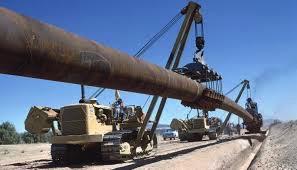Following a denial by the Public Utilities Commission for Summit to proceed with a carbon dioxide pipeline, the South Dakota Legislature has passed bills that provide protection for landowners but will allow easements to facilitate the project. Pipeline operators will have to pay for access to survey land and counties could collect a surcharge. Pipeline companies would be responsible for damage and easements would be restricted to 99 years. The final version of the legislation allows the Public Utilities Commission to overrule setbacks determined by individual counties.

Summit has proposed the $8 billion pipeline project that would collect carbon dioxide from 57 ethanol plants in South Dakota and neighboring states to be transported to North Dakota for underground sequestration.
Some funding will be provided by the federal government in form of tax credits to incentivize reduction of carbon dioxide release. Tax credits were first introduced in 2008 and were expanded under the previous Administration.
The South Dakota Farmers Union was unhappy with the package of bills passed by the State House and Senate. The Association commented on the domination of the legislature by “large special interest groups to the detriment of family farmers”. It is significant that South Dakota Ethanol Producers Association supported the bill promoting the first Landowner Bill of Rights claiming that all parties would benefit.
An obvious question is in the absence of a pipeline and sequestration, how is the ethanol industry currently disposing of carbon dioxide produced during the fermentation of corn? It is understood that only a small proportion is disposed of by capture and sale or on-site subsoil injection. If one-third of the corn crop is converted to ethanol then one-ninth of the mass of corn produced each year is vented. This contradicts the claim of ethanol being environmentally beneficial when added to gasoline at ten percent.